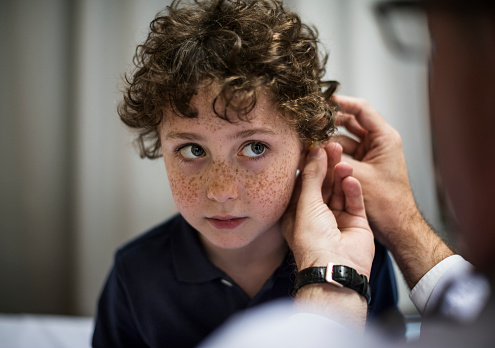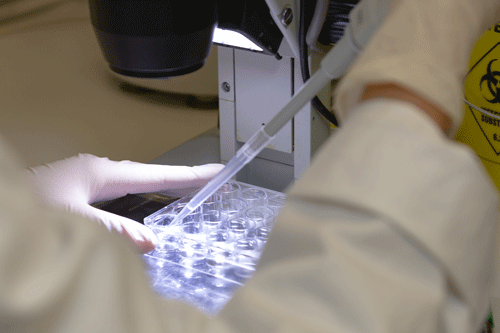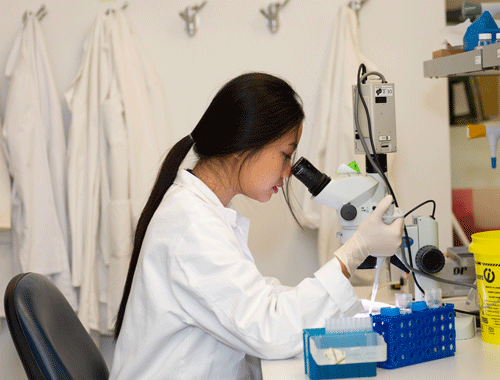
Amblyaudia correction by gain adjustment of remote microphone hearing aids
Principle Investigators: Dr William Keith (SoundSkills APD Clinic). Associate Investigators: Dr Deborah Moncrieff (University of Pittsburgh); Prof. Suzanne Purdy (University of Auckland.
Amblyaudia correction by gain adjustment of remote microphone hearing aids
Principle Investigators: Dr William Keith (SoundSkills APD Clinic). Associate Investigators: Dr Deborah Moncrieff (University of Pittsburgh); Prof. Suzanne Purdy (University of Auckland.
Auditory processing disorder (APD) is an underlying cause of learning disorders in thousands of New Zealand children and arises from abnormalities in how the brain processes sound information. Amblyaudia, where one ear dominates input of sound information to the brain and suppresses the input from the other ear, occurs in about half of the children with APD and may underly the disorder, or be part of a broader range of processing issues.
The HRF funded a pilot study in 2016 to ascertain where amblyaudia could be corrected by the fitting of hearing aids. These would deliver changing sound levels to the dominant ear, where initially sound level is reduced, and then gradually increased over a period of weeks to match the sound level received by the non-dominant ear. This remote treatment is different to current strategies, where children must attend audiology clinics.
Initial results were encouraging and this study aims to more rigorously test the effectiveness of remote hearing aids for treatment of amblyaudia. It is hypothesised that this treatment strategy would improve treatment efficiency and reduce treatment costs for children who need both amblyaudia therapy and hearing aids for their APD.

A pilot study to identify metabolic network changes in tinnitus patients using metabolomics
Principle Investigator: Dr. Yiwen Zheng (University of Otago). Associate Investigators: A/P Grant Searchfield (University of Auckland); Prof. Paul Smith (University of Otago)
A pilot study to identify metabolic network changes in tinnitus patients using metabolomics
Principle Investigator: Dr. Yiwen Zheng (University of Otago). Associate Investigators: A/P Grant Searchfield (University of Auckland); Prof. Paul Smith (University of Otago)
Tinnitus is a common intrusive auditory disorder, namely, the perception and conscious awareness of sound that is not physically present. Prevalence of tinnitus in NZ is reported as 6% for the total population and 13.5% for people over 65 years. With the increases in the ageing population in NZ, tinnitus is likely to impact an increasing number of New Zealanders in the future.
Tinnitus treatment options are very limited and none of the currently available approaches show benefit following meta-analytic scrutiny. The heterogeneity of this disorder requires an innovative, dynamic approach to improve diagnosis and treatment outcomes. Metabolomics analyses changes in the concentrations of a broad range of metabolites, and could provide biomarkers and treatment targets for tinnitus that is tailored to the patient.
This project brings together tinnitus research experts from Otago and Auckland to identify tinnitus biomarkers in human patients. This proof of concept study will provide evidence for the feasibility of conducting a large scale, multi-centre clinical study to identify tinnitus-causing metabolic networks for patients with different tinnitus profiles.

Building foundation for Pharmacological therapies of hearing loss: the role of adenosine receptiors in regeneration of afferent synapses in the cochlea after excitotoxic injury.
Principle Investigator: A/P Srdjan Vlajkovic (University of Auckland). Associate Investigators: Prof. Peter Thorne, Dr Shelly Lin (University of Auckland)
Building foundation for Pharmacological therapies of hearing loss: the role of adenosine receptiors in regeneration of afferent synapses in the cochlea after excitotoxic injury.
Principle Investigator: A/P Srdjan Vlajkovic (University of Auckland). Associate Investigators: Prof. Peter Thorne, Dr Shelly Lin (University of Auckland)
Sensorineural hearing loss describes the loss of the sensory receptor cells in the ear as well as the primary auditory neurons that carry sound information from the ear to the brain. This process is associated with noise exposure and aging and recent research suggests that extensive loss of connections between the neurons and the receptor cells is the earliest sign of cochlear damage, which leads to degeneration of the neurons. This impedes transmission of sound information to the brain and presents as complex auditory processing deficits such as difficulties discriminating speech in noisy environments.
Adenosine receptors mediate important neuroprotective signalling pathways and have been proposed as therapeutic targets in a variety of neurodegenerative conditions, including cochlear damage. This study will examine whether adenosine receptor signalling may prevent or repair the loss of connections between primary auditory neurons and the receptor cells in the cochlea. This information would improve our understanding of the molecular basis of sensorineural hearing loss and contribute to improved auditory outcomes for individuals with hearing loss.

Towards a national animal vestibular function testing platform: Development of a national vestibulo-ocular reflex testing facility for rodents.
Principle Investigator: Prof. Paul Smith (University of Otago). Associate Investigators: Dr Yiwen Zheng (University of Otago), Prof. Peter Thorne and A/P Srdjan Vlajkovic (University of Auckland)
Towards a national animal vestibular function testing platform: Development of a national vestibulo-ocular reflex testing facility for rodents.
Principle Investigator: Prof. Paul Smith (University of Otago). Associate Investigators: Dr Yiwen Zheng (University of Otago), Prof. Peter Thorne and A/P Srdjan Vlajkovic (University of Auckland)
The vestibular system regulates our balance. Approximately 35% of people aged 40 or over have suffered from some form of vestibular dysfunction and the incidence of vestibular deficits increases with age, reaching almost 50% over the age of 60. The consequences of dysfunction of the vestibular system in humans can be severe and extremely debilitating and in the worst case scenario, people lead very restricted lives, with high rates of anxiety disorders and depression.
Extensive research on the effects of unilateral and bilateral vestibular dysfunction has been carried out in NZ, however we do not currently have a facility that records the vestibulo-ocular reflex (VOR), the most direct measure of vestibular function, in animal subjects. The anticipated growth of animal vestibular research within the Eisdell Moore Centre requires adequate vestibular function testing approaches. The aim of this project is to develop a national testing facility at the University of Otago for the measurement of VOR function in rats and mice, which can then be used in collaborative research with colleagues at the University of Auckland and elsewhere.